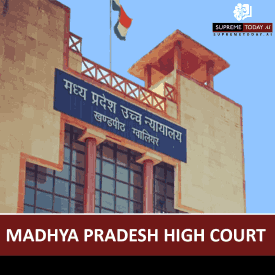Searched Results
-
Applicability of Civil Procedure Code (CPC) - The CPC is applicable only to the extent specified by the court or relevant statutory provisions. For example, Claims Tribunals are deemed civil courts but only partially subject to CPC, primarily for taking evidence on oath; the entire CPC is not automatically applicable MANGILAL GANPAT VS UNION OF INDIA (UOI) - Madhya Pradesh, MANGILAL GANPAT VS UNION OF INDIA CHIEF SECRETARY TO THE GOVT OF INDIA NEW DELHI - Madhya Pradesh.
-
Limited Scope of CPC in Specialized Tribunals and Proceedings - Many tribunals, such as Claims Tribunals and Labour Courts, are considered civil courts for certain purposes but are not fully governed by the CPC. Their procedures are often left to specific rules or are only partially guided by the CPC, especially regarding evidence and procedural steps MANGILAL GANPAT VS UNION OF INDIA (UOI) - Madhya Pradesh, Odamthode Ksheerolpadaka Sahakarana Sangam Ltd. VS Mathew - Kerala.
-
Procedural vs. Substantive Law - The CPC's provisions are primarily procedural. Courts have held that only the procedural parts of the CPC are applicable in certain proceedings, and substantive law remains governed by special statutes or laws. For instance, in miscellaneous proceedings or appeals, only specific procedural sections like Section 141 are extended, not the entire CPC RAJ KUMAR ROWLA VS MANABENDRA BANERJEE - Calcutta, Raj Kumar Rowla VS Manabendra Banerjee - Calcutta, Sabyasachi Chatterjee VS Prasad Chatterjee - Calcutta.
-
Specific Provisions and Mandatory Nature - Certain provisions, such as Order 37 Rule 2, are mandatory, and non-compliance can affect the proceedings. However, the applicability of such rules depends on the context—whether the suit is civil or under special statutes. The legislature's intent is to limit CPC's application to procedural aspects only KHERA HANDLOOM SUPPLY VS O. B. EXPORTS - Delhi.
-
Civil Courts and Special Laws - Civil courts are generally governed by the CPC, but in cases involving special laws or statutes (e.g., Motor Vehicles Act, Recovery of Debts Act), the CPC's application is limited or modified. For example, Claims Tribunals under the Motor Vehicles Act are deemed civil courts but only follow certain procedural aspects of the CPC MANGILAL GANPAT VS UNION OF INDIA (UOI) - Madhya Pradesh, MANGILAL GANPAT VS UNION OF INDIA CHIEF SECRETARY TO THE GOVT OF INDIA NEW DELHI - Madhya Pradesh.
-
Inherent Powers and Court Discretion - Courts' inherent powers under the CPC, such as Section 151, are limited and only exercisable where no specific remedy is provided. These powers are often regarded as abrogated or restricted by legislation, emphasizing that the CPC's procedural provisions are to be applied selectively DAYA ENGG. WORKS (SLEEPER) LTD. VS UNION OF INDIA - Delhi.
-
Conclusion - The Civil Procedure Code is not universally applicable in its entirety to all proceedings or tribunals. Its provisions are applicable only to the extent explicitly specified by law or court order, primarily governing procedural aspects rather than substantive rights. Specialized tribunals and courts operate under their own rules, with the CPC serving as a procedural guide to the extent permitted MANGILAL GANPAT VS UNION OF INDIA (UOI) - Madhya Pradesh, RAJ KUMAR ROWLA VS MANABENDRA BANERJEE - Calcutta, Odamthode Ksheerolpadaka Sahakarana Sangam Ltd. VS Mathew - Kerala.
Summary:
The CPC's applicability is limited to procedural matters and only to the extent specified by courts or statutes. It is not fully applicable to specialized tribunals or proceedings unless explicitly stated, emphasizing a tailored approach where procedural rules are adopted selectively rather than wholesale.

















